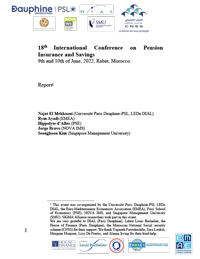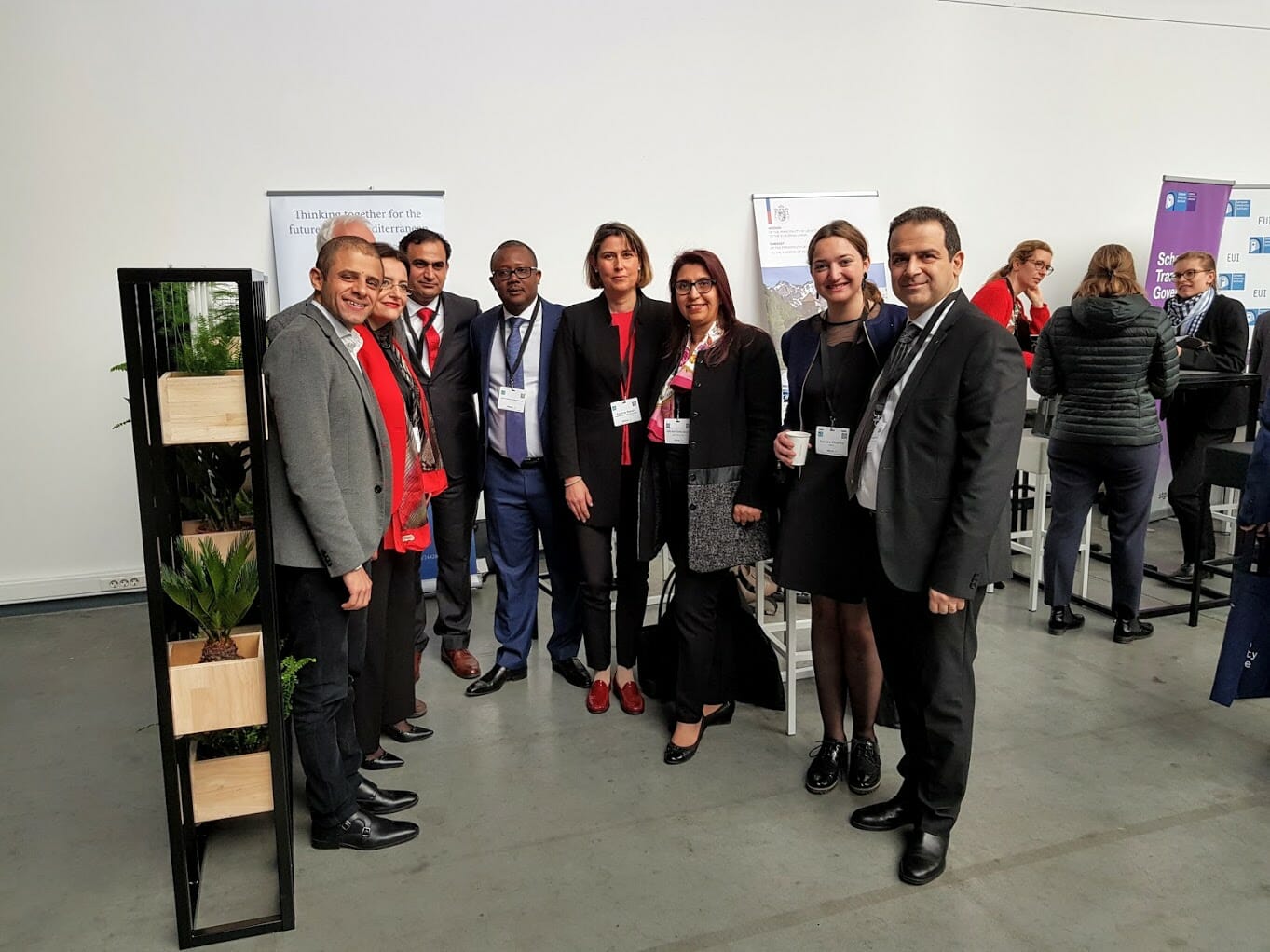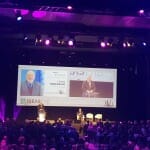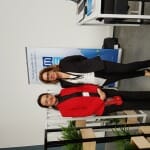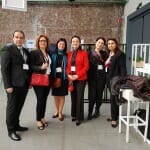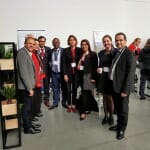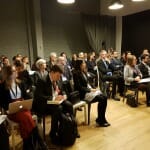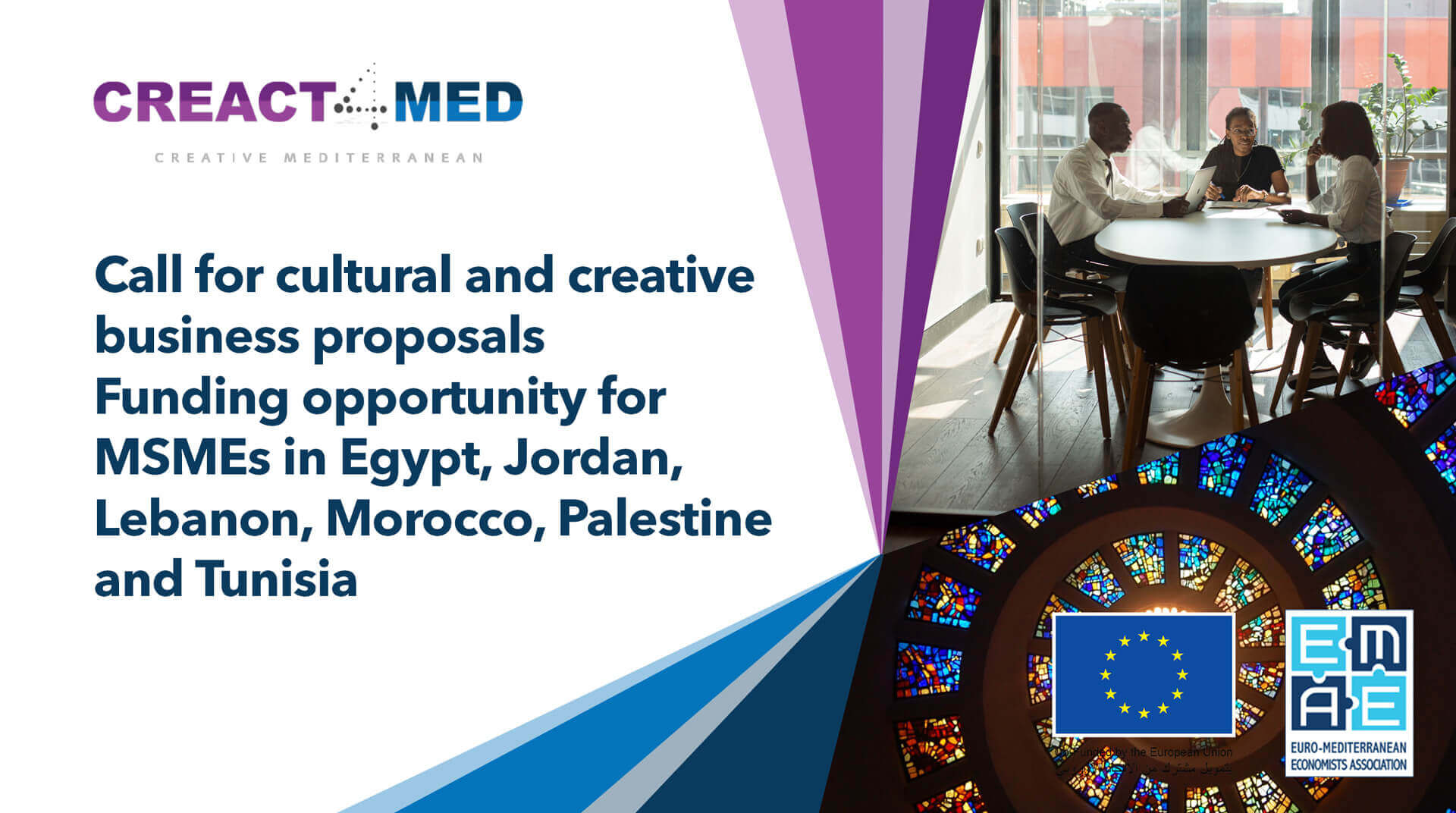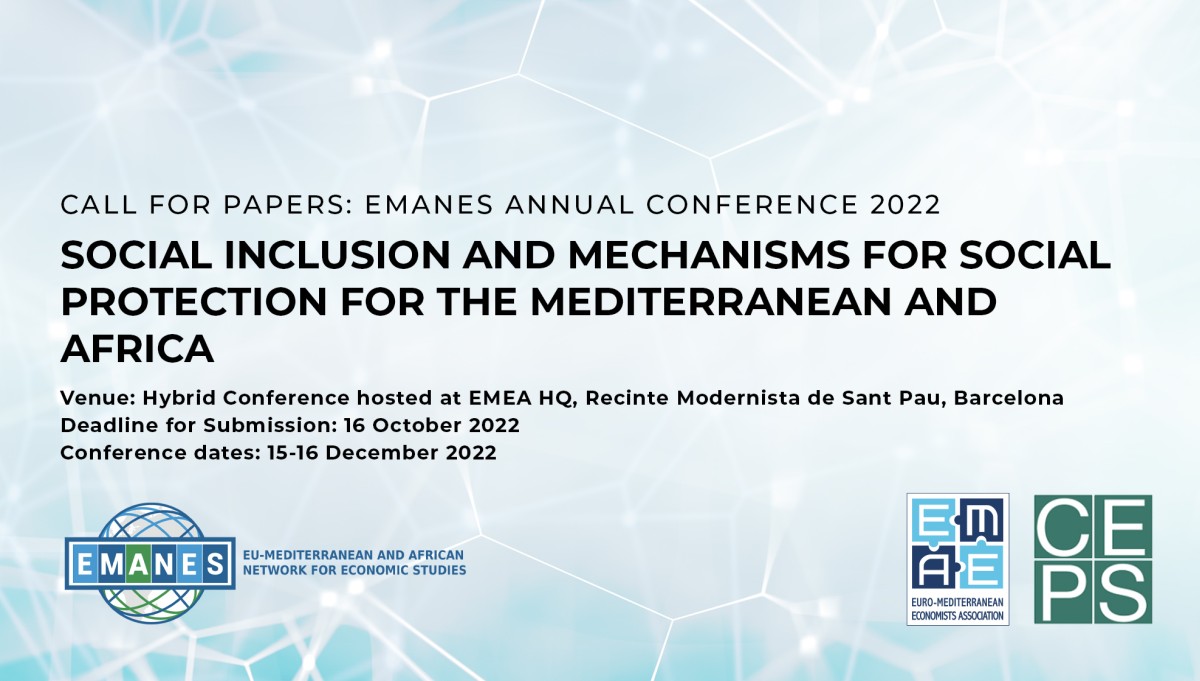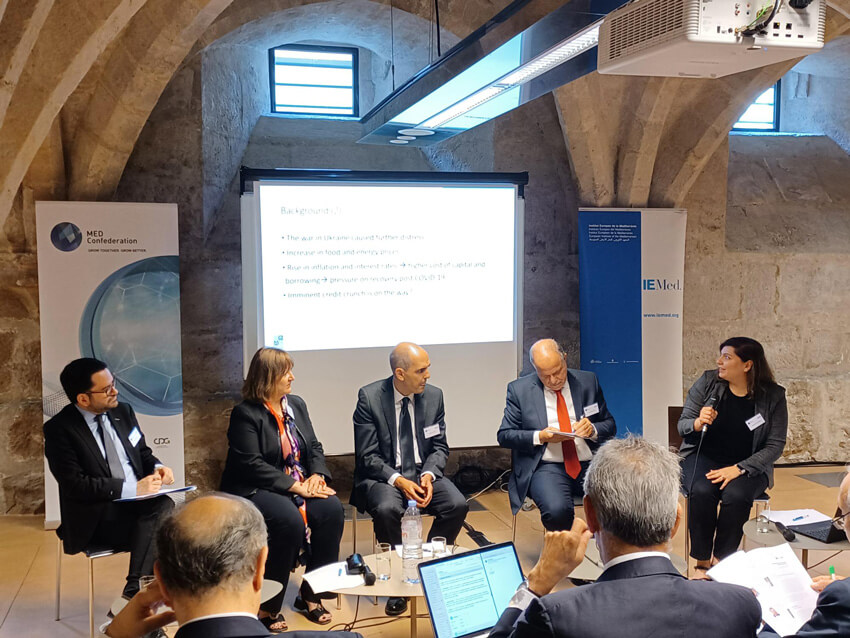IdeasLab 2019 was organised by the Centre for European Policy Studies – CEPS, one of Europe’s most reputable think-tanks, which is currently ranked at the 8th position in Europe and 23rd Worldwide, according to the 2018 Global Go to Think Tank Index. CEPS is a partner of the Euro-Mediterranean Economists Association – EMEA and of the Euro-Mediterranean Network for Economic Studies – EMNES.
Ideas Lab is the most high-profile annual event on policies of the EU. It is an annual forum that brings together Europe’s top decision makers and thinkers to discuss the major issues confronting the EU and to explore innovative solutions. In 2019, the theme was “Europe’s Choice” and took place in Brussels, 21-22 February 2019.
As a partner of CEPS the Euro-Mediterranean Economists Association – EMEA was honored to be one of IdeasLab 2019 silver sponsors and participated to the event, having a booth at the venue and with a team consisting of the following EMEA members:
- Rym Ayadi – Founder and President EMEA and Director EMNES. Prof. at Cass Business School
- Carlo Sessa – Research Director and former President of the Institute of Studies for the Integration of Systems of Rome – EMEA Executive Board
- Roger Albinyana – Director IEMED- EMEA Advisory Board
- Sandra Challita – EMEA Researcher
- Emanuele Sessa – EMEA Researcher
- George Christopoulos – EMEA Communication
During the event, EMNES organised the panel “A new role for the EU in the Mediterranean?”, chaired by EMNES Director and EMEA Founding President, Prof. Rym Ayadi. Participants:
- Ibrahim Saif, Senior Fellow, Middle East Institute and Former Minister of Planning and Energy, Jordan
- Elyes Fakhfakh, Former Minister of Finance and Tourism, Tunisia
- Michael A. Köhler, Director for EU-Neighbourhood Policy, European Commission
- Fathallah Sijilmassi, Former Secretary General, Union for the Mediterranean
After a lively debate the panel concluded that regional integration and improving governance and institutional quality in the region should remain the key priorities in the political agendas in the EU and in the Mediterranean partner countries. Despite the divergence trends that increased the socio-economic gaps between the EU and the Mediterranean, more convergence efforts must be deployed. These efforts might revert the negative agendas built on the threats coming from Southern part of the Mediterranean and used by the populist growing proponents in the Northern part.
EMNES members also participated to the session “EU-Africa migration partnerships: What balance between migration management and economic development?” chaired by Mikkel Barslund, Research Fellow and Head of Ageing Societies Programme, CEPS, and MEDAM expert, along with the following participants:
- Umaro Mokhtar Sissoco Embaló, Former Prime Minister, Guinea Bissau
- Philip Bob Jusu, Socio-Economist, Permanent Mission to the Africa Union to the European Union
- Christian Friis Bach, Secretary General, Danish Refugee Council (DRC)
The panel emphasised the potential for development and value creation in the African Continent and the need for a win-win economic partnership anchored in investment, trade and job creation between the EU and Africa. Such partnership must be built on sustainable development not on salvation.
The session was organised in the context of the Mercator Dialogue on Asylum and Migration (MEDAM) project, with which EMNES has collaborated on migration issues.
An Interview of EMNES Director, Prof. Rym Ayadi , during CEPS IdeasLab conference can be found at https://www.pscp.tv/w/1MYGNyPvWMZKw

